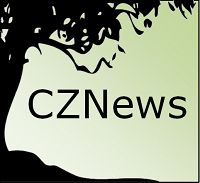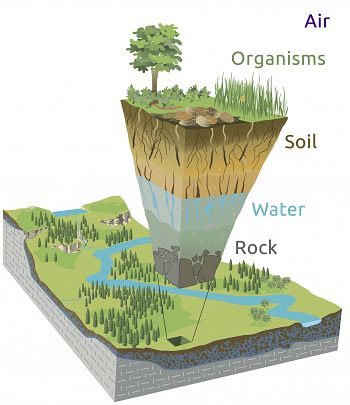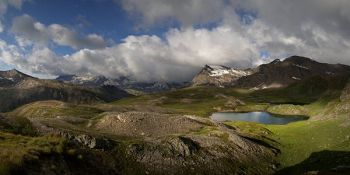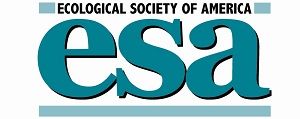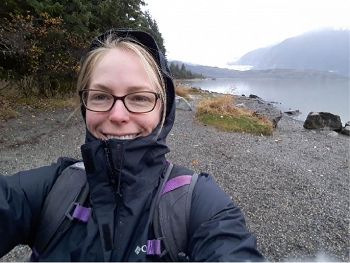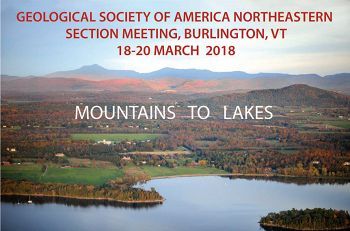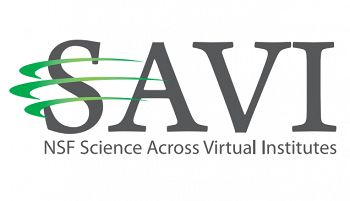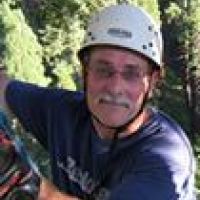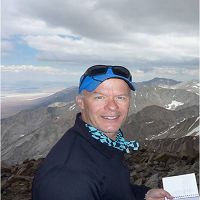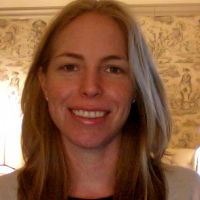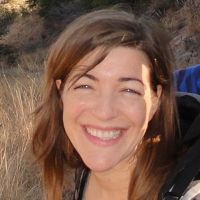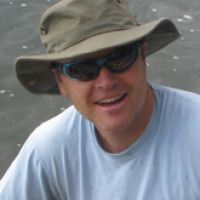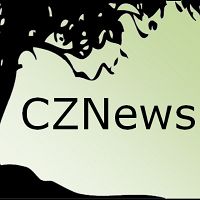CZNews: Spring 2018
Print Verison: CZNews - Spring 2018(1 MB PDF)
CZO Summer Course in Italy
The Critical Zone and Ecosystem Dynamics summer course will be held July 10-18 at the Gran Paradiso National Park in Piedmont, Italy. Hosted by the Gran Paradiso Summer School, the course is a joint effort by the U.S. CZO SAVI program and the European Community’s ECOPOTENTIAL project. The course is intended for doctoral students, post-docs, and researchers who work or intend to work on the relationship between CZ processes and ecosystem dynamics. Over 9-days, participants will engage in a series of lectures, seminars, and tutorials including three days in the field at CZ study sites in the Italian Alps. Find a full list of instructors and topics here. The course will span a wide range of CZ dynamics related to hydrology, soil geochemistry and weathering, vegetation dynamics and distribution, microbiota, biodiversity, ecosystem processes, geological processes and the role of the CZ for achieving sustainable development goals. Field activities will include eddy covariance, flux chamber, vegetation, bedrock and soil surveys, biodiversity monitoring, and soil chemistry and hydrology. The deadline to apply is May 15, 2018. Learn more about the course and how to apply at www.to.isac.cnr.it/gpss.
ESA Fellows 2018
We would like to congratulate CZO researchers Todd Dawson (UC Berkeley) and Stephen Hart (UC Merced) for being elected as 2018 Fellows of The Ecological Society of America (ESA). ESA’s fellowship program recognizes its members for their contributions to ecological research and discovery, communication, education and pedagogy, and management and policy. Dawson, a Professor in the Department of Integrative Biology at UC Berkeley and researcher at the Eel River CZO, was “elected for pioneering research on sources and pathways of plant water uptake with fundamental contributions at the interface among geosphere, biosphere and atmosphere.” Hart, a Professor of Ecology, Life and Environmental Sciences at UC Merced and researcher at the Southern Sierra CZO, was “elected for groundbreaking contributions in terrestrial ecosystem ecology and forest management. His pioneering use of stable isotopes transformed understanding of forest nitrogen cycling and soil microbial structure and function.” For a full list of the 2018 ESA Fellows and Early-Career Fellows, please visit www.esa.org.
Events
- CUAHSI 2018 Biennial Colloquium, July 29 - August 1, Shepherdstown, WV
- Goldschmidt 2018, August 12-17, Boston, MA
- GSA Annual Meeting 2018, November 4-7, Indianapolis, IN
- AGU Fall Meeting 2018, December 10-14, Washington, D.C.
CZO Spotlight: A recipe for building a local CZ community
Pamela L. Sullivan, Assistant Professor, University of Kansas, Department of Geography and Atmospheric Science
Like many early career faculty who came through the CZO program as a postdoc or graduate student, Pam Sullivan took a faculty position at a university (University of Kansas) where the idea of CZ science was just beginning. Not surprisingly, she longed for her CZ buddies when she began four years ago. At the end of the first year, slightly more equilibrated to the position, she realized she needed more than CZ colleagues at other institutions - she craved talking CZ science face-to-face on at least a weekly basis. So, she approached colleagues across departments (e.g., Biology, Geology, Geography and Atmospheric Science) to form a CZ science working group, and asked for 1 hour of their and their students’ times to discuss relevant science outside of their immediate disciplinary focus. Surprisingly to her, Pam encountered great enthusiasm among the faculty to have dedicated time each week to talk science with their fellow colleagues. The group is not large — eight faculty and their respective graduate students — but they all look forward to weekly one-hour discussions, so much so that they assign homework and are working toward a concept paper on scale. If you crave a local CZ community, consider Pam’s recipe:
- Start a CZ reading/working group at your university,
- Open it to faculty and graduate students,
- Define a goal (e.g., review or concept papers, data sharing from similar sites), and
- Encourage everyone to bring their wild ideas and foster a fearlessness of failure.
CZO at GSA NE Section Meeting
The 2018 Geological Society of America Northeastern (GSA NE) Section Meeting took place March 18-20 in Burlington, Vermont. Julia Perdrial (University of Vermont) and Tim White (Penn State) organized a technical session, “Critical Zone Processes, Function, and Resiliency: Challenges and Opportunities.” The session was focused on contributions that investigate the CZ, focus on CZ functions and/or resilience, and stressors related to the Anthropocene. Presentations included topics such as sediment flux due to tree throw, controls on manganese across the CZOs, the formation of boulder fields, and human-volcano interactions in a tropical CZ. The interest at this session and at past GSA NE Meetings around CZ science has encouraged the CZO National Office (CZO NO) to plan for a presence at this meeting annually, as well as encourage CZO participation at other GSA section meetings. The CZO NO will aim to participate in the 2019 GSA NE regional meeting in Portland, Maine next March.
2018 CZO SAVI Awards
The CZO Science Across Virtual Institutes (SAVI) program announces awards to six international scholars and three summer interns for their proposed interdisciplinary and cross-site research on the CZ. A major goal of the SAVI program is to promote interactions among researchers using U.S. CZO sites and sites worldwide to develop cross-site science. To learn more about SAVI and past recipients’ research, please visit criticalzone.org/national/infrastructure/czo-virtual-institute/. Listed below are this year’s recipients, and their proposed research project and site location.
2018 SAVI International Scholars
- María Chapela Lara (UNH): “A two-solutes world: insights from non-traditional stable isotopes at the Luquillo CZO” (Germany)
- David Dralle (UC Berkley): “A cross-network investigation of seasonally dry ecosystems across a lithologic/climatic gradient” (Chile)
- Emma Harrison (UC San Diego): “The impact of landscape evolution on soil production” (Australia)
- James Knighton (Cornell): “Investigating the Influence of Plant Water Uptake, Climate, and Geology on Root Zone Travel Times” (Scotland, Germany)
- Erin Rooney (Oregon SU): “European CZ Permafrost” (Italy)
- Juliana Spector (Rice): “Linking water and carbon cycles along a climosequence in the Texas Gulf Coastal plain” (France)
2018 SAVI Summer Interns
- Taylor Blackman (Va Tech): “Cluster Analysis of Vernal Pools using Field Survey Metrics” (SSHCZO)
- Kayla Glossner (Idaho SU): “Comparing Particulate Organic Carbon Export across two Semi-Arid CZOs” (CJCZO)
- Caitlin Hodges (PSU): “A cross-CZO study examining the role of near-stream soils as regulators of terrestrial nutrient inputs” (CCZO)
CZNews
Receive the CZO Email Newsletter
Occasional email will include news, events, and other info related to Critical Zone Observatories.
We hate spam as much as you do, so your information will never be shared. You can unsubscribe at any time.
Gran Paradiso National Park Photo: Antonello Provenzale
ESA
Pamela L. Sullivan, Assistant Professor, University of Kansas, Department of Geography and Atmospheric Science
GSA NE Section Meeting Flyer 2018
SAVI
Modified from Chorover, J., R. Kretzschmar, F. Garcia-Pichel, and D. L. Sparks. 2007. Soil biogeochemical processes in the critical zone. Elements 3, 321-326. (artwork by R. Kindlimann)
News Category:
EDUCATION/OUTREACH
People Involved
CZO
-
Eel, INVESTIGATOR
-
Sierra, INVESTIGATOR
-
Calhoun, Shale Hills, INVESTIGATOR, COLLABORATOR
-
Catalina-Jemez, Luquillo, Reynolds, INVESTIGATOR
-
National, Shale Hills, INVESTIGATOR, STAFF
Explore Further
